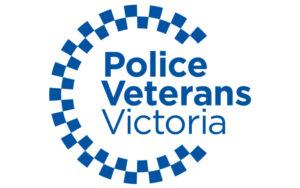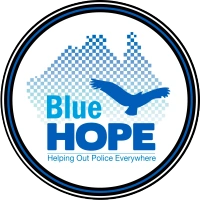Overview
Police officers work in an environment that is often stressful and physically demanding which means our body’s natural response is to produce hormones such as adrenaline and cortisol. When this natural response becomes unregulated due to long term exposure to stress it can and sometimes does lead to anxiety.
Likewise, family members of police officers may also feel stressed when living with a loved one who is working long hours, rotating shifts and who may be experiencing trauma in the workplace. The added pressures of a partner being away from home in possibly dangerous working environments can impact on family via regularly feeling worried and covering extra home commitments which add further stress on partners and sometimes children.
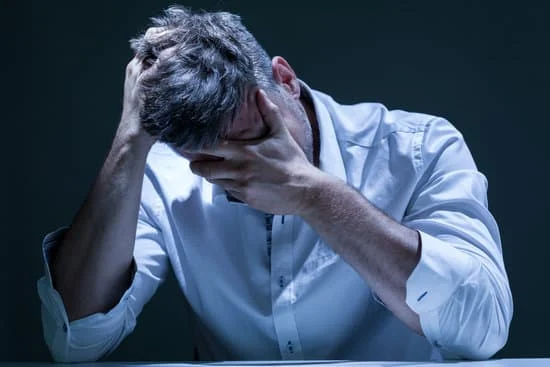
Feelings of stress will accordingly come and go and may dissipate when the body moves into the rest and restore mode where the parasympathetic nervous system kicks in. Simply stopping, taking a few long slow breaths, meditating or talking about the stressful situation or thoughts to a trusted colleague, friend or family member may resolve the physical feelings of anxiety however the impact of everyday work life combined with family issues and life pressures may result in the need to seek professional help.
There are several avenues to seeking support, attending your GP at the first instance and discussing the issues around work life balance will assist your doctor to assess what type of support may be required. A referral via a mental health plan is an option to commence a series of counselling sessions preferably with a suitably trauma informed clinician who understands police culture.
Otherwise, contacting your state jurisdiction Employee Assistance Program can also assist with counselling or making an appointment to speak with your state chaplaincy service can be helpful.
To identify when anxiety may be an issue and it might be appropriate to seek further assistance the following list of symptoms and signs can be helpful to look out for:
- Difficulty concentrating
- Unnecessary worries or concerns that continue to pop into your mind
- Difficulty falling to sleep or staying asleep
- A general feeling of being unable to relax
- Keeping yourself busy all the time
- Avoiding places or people
- Feeling irritable, annoyed or restless
- Avoiding family and friends
- Feeling shaky or experiencing sweaty palms
- Frequent headaches, migraines or muscle aches
- Feeling your heart racing
- Shortness of breath
- Panic attacks
- Feelings of impending doom
Step-By-Step
When should I consider seeing my GP?

Anxiety starts to impact your daily work and home life
Feelings of panic become noticeable to the point where you can't relax or you feel you need to run away
You notice your heart pounding, shortness of breath and a general feeling of impending doom
What is the next steps when seeing my GP?

Making an appointment with your GP and explaining your symptoms will assist your Doctor to understand your feelings and what may be the underlying cause
Your GP will generally ask you to fill out a number of questionnaires to assist with assessing your condition
You may then be referred to an appropriate health clinician for further diagnosis, medication or counselling
In the meantime, it may help to reduce Caffeine, Alcohol and Non Prescription Medication
Content for anxiety or depression
 25 Oct 2023
25 Oct 2023
ACT Curious
Since 2007 ACT Curious has changed the lives of thousands of Australians through Employee Assistance Programs and therapeutic counselling grounded in evidence based practices.
We have the depth and breadth of experienced therapists who specialise in treating vicarious trauma, PTSD, relationship issues and many other issues. We listen to you and we match you with a therapist who specialises in your area of need which includes police and their family members.
 10 Jun 2022
10 Jun 2022
Addictions
Addictions are formed when substances or behaviours become unhealthy and start to impact function levels.
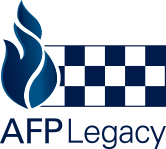 03 Apr 2022
03 Apr 2022
AFP Legacy
Police Legacy provide professional and compassionate support to families who have suffered a loss through the provision of benefits and services. Children who have lost a parent may benefit from camps, scholarships, trust funds and regular social engagement which is also extended to partners and parents. Each jurisdiction has independent services which may differ from state to state.
 03 Apr 2022
03 Apr 2022
AFPA: The Australian Federal Police Association
All Australian Police jurisdictions have Police Unions who provide Industrial Relations, Financial and in some state’s welfare and mental health support and services. Assistance for issues relating to workers compensation, legal matters, necessitous circumstances, and career transition may also be available through your state union. Associate membership for former officers is another way to stay connected to support and services post policing.
 31 Oct 2022
31 Oct 2022
Alcoholics Anonymous
Alcohol Anonymous is based on one alcoholic helping another and offers solutions to dealing with alcohol addiction.
 03 Apr 2022
03 Apr 2022
AMC Change Factor (S.A and online nationally)
AMC provides a multidisciplinary holistic approach to supplying services such as mental health management via counselling and case management for individuals, families and couples dealing with anxiety, depression, stress management, grief and loss, problem solving, alcohol and drugs and dealing with conflict. Youth Mental Health Services are also available.
 03 Apr 2022
03 Apr 2022
Australian and New Zealand Mental Health Association
Educational materials and events such as annual conferences across Australia assist with engagement across the mental health industry. Educational materials and events such as annual conferences across Australia assist with engagement across the mental health industry.
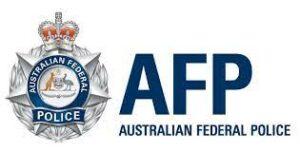 03 Apr 2022
03 Apr 2022
Australian Federal Police
Each individual state police jurisdictions will have mental health services for serving police which should include an Employee Assistance Program (EAP) along with other specific services. This may include EAP for transitioning police, former police up to 12 months and services for families. Career Transition services may also be included in some jurisdictions as moving into a new career after serving in the police force impacts mental health outcomes.
 03 Apr 2022
03 Apr 2022
Australian Federal Police Former Members Association Inc
Staying connected to the police family by joining your local retired and former police association may be helpful in maintaining social connection and positive mental health outcomes. Each state jurisdiction has a retired and former police association where regular monthly meetings and social events assist with staying in touch with former colleagues.
 03 Apr 2022
03 Apr 2022
BeachShack Breathing - Yoga and Breath Practice for Serving and Former Police Based in Wollongong NSW
Kate Kilby is a former police officer and yoga teacher based in Wollongong, NSW offering breathing and yoga practice to assist serving and former police to find peace, recovery and hope.
 30 Mar 2022
30 Mar 2022
Benevolent society
At The Benevolent Society, we put people first and work together as one to meet our vision of a just society where all Australians can live their best life.
 14 Nov 2022
14 Nov 2022
Blue Hub
Provided by TPAV, this streamlined mental health service supports and assists serving Victorian police and Victorian based AFP members. Services include culturally sensitive assessment and treatment options for those dealing with trauma related conditions provided by evidenced based clinicians to assist with Workcover and return to work options.
 03 Apr 2022
03 Apr 2022
Blue Space (Victoria)
Mental health, resilience, relationship, and wellbeing information via website resources for Victorian Police employees, families, and friends.

 Exit
Exit
